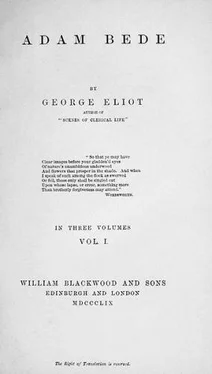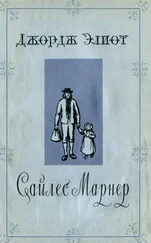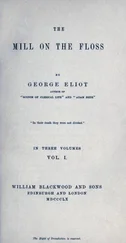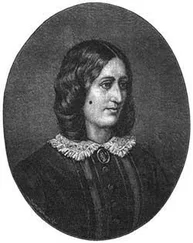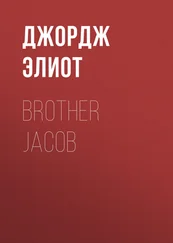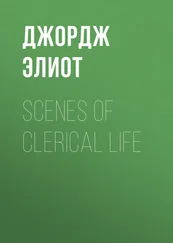Adam dared not plead again, for Dinah's was not the voice of caprice or insincerity. But it was very hard for him; his eyes got dim as he looked at her.
"But you may come to feel satisfied…to feel that you may come to me again, and we may never part, Dinah?"
"We must submit ourselves, Adam. With time, our duty will be made clear. It may be when I have entered on my former life, I shall find all these new thoughts and wishes vanish, and become as things that were not. Then I shall know that my calling is not towards marriage. But we must wait."
"Dinah," said Adam mournfully, "you can't love me so well as I love you, else you'd have no doubts. But it's natural you shouldn't, for I'm not so good as you. I can't doubt it's right for me to love the best thing God's ever given me to know."
"Nay, Adam. It seems to me that my love for you is not weak, for my heart waits on your words and looks, almost as a little child waits on the help and tenderness of the strong on whom it depends. If the thought of you took slight hold of me, I should not fear that it would be an idol in the temple. But you will strengthen me — you will not hinder me in seeking to obey to the uttermost."
"Let us go out into the sunshine, Dinah, and walk together. I'll speak no word to disturb you."
They went out and walked towards the fields, where they would meet the family coming from church. Adam said, "Take my arm, Dinah," and she took it. That was the only change in their manner to each other since they were last walking together. But no sadness in the prospect of her going away — in the uncertainty of the issue — could rob the sweetness from Adam's sense that Dinah loved him. He thought he would stay at the Hall Farm all that evening. He would be near her as long as he could.
"Hey-day! There's Adam along wi' Dinah," said Mr. Poyser, as he opened the far gate into the Home Close. "I couldna think how he happened away from church. Why," added good Martin, after a moment's pause, "what dost think has just jumped into my head?"
"Summat as hadna far to jump, for it's just under our nose. You mean as Adam's fond o' Dinah."
"Aye! hast ever had any notion of it before?"
"To be sure I have," said Mrs. Poyser, who always declined, if possible, to be taken by surprise. "I'm not one o' those as can see the cat i' the dairy an' wonder what she's come after."
"Thee never saidst a word to me about it."
"Well, I aren't like a bird-clapper, forced to make a rattle when the wind blows on me. I can keep my own counsel when there's no good i' speaking."
"But Dinah 'll ha' none o' him. Dost think she will?"
"Nay," said Mrs. Poyser, not sufficiently on her guard against a possible surprise, "she'll never marry anybody, if he isn't a Methodist and a cripple."
"It 'ud ha' been a pretty thing though for 'em t' marry," said Martin, turning his head on one side, as if in pleased contemplation of his new idea. "Thee'dst ha' liked it too, wouldstna?"
"Ah! I should. I should ha' been sure of her then, as she wouldn't go away from me to Snowfield, welly thirty mile off, and me not got a creatur to look to, only neighbours, as are no kin to me, an' most of 'em women as I'd be ashamed to show my face, if my dairy things war like their'n. There may well be streaky butter i' the market. An' I should be glad to see the poor thing settled like a Christian woman, with a house of her own over her head; and we'd stock her well wi' linen and feathers, for I love her next to my own children. An' she makes one feel safer when she's i' the house, for she's like the driven snow: anybody might sin for two as had her at their elbow."
"Dinah," said Tommy, running forward to meet her, "mother says you'll never marry anybody but a Methodist cripple. What a silly you must be!" a comment which Tommy followed up by seizing Dinah with both arms, and dancing along by her side with incommodious fondness.
"Why, Adam, we missed you i' the singing to-day," said Mr. Poyser. "How was it?"
"I wanted to see Dinah — she's going away so soon," said Adam.
"Ah, lad! Can you persuade her to stop somehow? Find her a good husband somewhere i' the parish. If you'll do that, we'll forgive you for missing church. But, anyway, she isna going before the harvest supper o' Wednesday, and you must come then. There's Bartle Massey comin', an' happen Craig. You'll be sure an' come, now, at seven? The missis wunna have it a bit later."
"Aye," said Adam, "I'll come if I can. But I can't often say what I'll do beforehand, for the work often holds me longer than I expect. You'll stay till the end o' the week, Dinah?"
"Yes, yes!" said Mr. Poyser. "We'll have no nay."
"She's no call to be in a hurry," observed Mrs. Poyser. "Scarceness o' victual 'ull keep: there's no need to be hasty wi' the cooking. An' scarceness is what there's the biggest stock of i' that country."
Dinah smiled, but gave no promise to stay, and they talked of other things through the rest of the walk, lingering in the sunshine to look at the great flock of geese grazing, at the new corn-ricks, and at the surprising abundance of fruit on the old pear-tree; Nancy and Molly having already hastened home, side by side, each holding, carefully wrapped in her pocket-handkerchief, a prayer-book, in which she could read little beyond the large letters and the Amens.
Surely all other leisure is hurry compared with a sunny walk through the fields from "afternoon church" — as such walks used to be in those old leisurely times, when the boat, gliding sleepily along the canal, was the newest locomotive wonder; when Sunday books had most of them old brown-leather covers, and opened with remarkable precision always in one place. Leisure is gone — gone where the spinning-wheels are gone, and the pack-horses, and the slow waggons, and the pedlars, who brought bargains to the door on sunny afternoons. Ingenious philosophers tell you, perhaps, that the great work of the steam-engine is to create leisure for mankind. Do not believe them: it only creates a vacuum for eager thought to rush in. Even idleness is eager now — eager for amusement; prone to excursion-trains, art museums, periodical literature, and exciting novels; prone even to scientific theorizing and cursory peeps through microscopes. Old Leisure was quite a different personage. He only read one newspaper, innocent of leaders, and was free from that periodicity of sensations which we call post-time. He was a contemplative, rather stout gentleman, of excellent digestion; of quiet perceptions, undiseased by hypothesis; happy in his inability to know the causes of things, preferring the things themselves. He lived chiefly in the country, among pleasant seats and homesteads, and was fond of sauntering by the fruit-tree wall and scenting the apricots when they were warmed by the morning sunshine, or of sheltering himself under the orchard boughs at noon, when the summer pears were falling. He knew nothing of weekday services, and thought none the worse of the Sunday sermon if it allowed him to sleep from the text to the blessing; liking the afternoon service best, because the prayers were the shortest, and not ashamed to say so; for he had an easy, jolly conscience, broad-backed like himself, and able to carry a great deal of beer or port-wine, not being made squeamish by doubts and qualms and lofty aspirations. Life was not a task to him, but a sinecure. He fingered the guineas in his pocket, and ate his dinners, and slept the sleep of the irresponsible, for had he not kept up his character by going to church on the Sunday afternoons?
Fine old Leisure! Do not be severe upon him, and judge him by our modern standard. He never went to Exeter Hall, or heard a popular preacher, or read Tracts for the Times or Sartor Resartus.
The Harvest Supper
As Adam was going homeward, on Wednesday evening, in the six o'clock sunlight, he saw in the distance the last load of barley winding its way towards the yard-gate of the Hall Farm, and heard the chant of "Harvest Home!" rising and sinking like a wave. Fainter and fainter, and more musical through the growing distance, the falling dying sound still reached him, as he neared the Willow Brook. The low westering sun shone right on the shoulders of the old Binton Hills, turning the unconscious sheep into bright spots of light; shone on the windows of the cottage too, and made them a-flame with a glory beyond that of amber or amethyst. It was enough to make Adam feel that he was in a great temple, and that the distant chant was a sacred song.
Читать дальше
